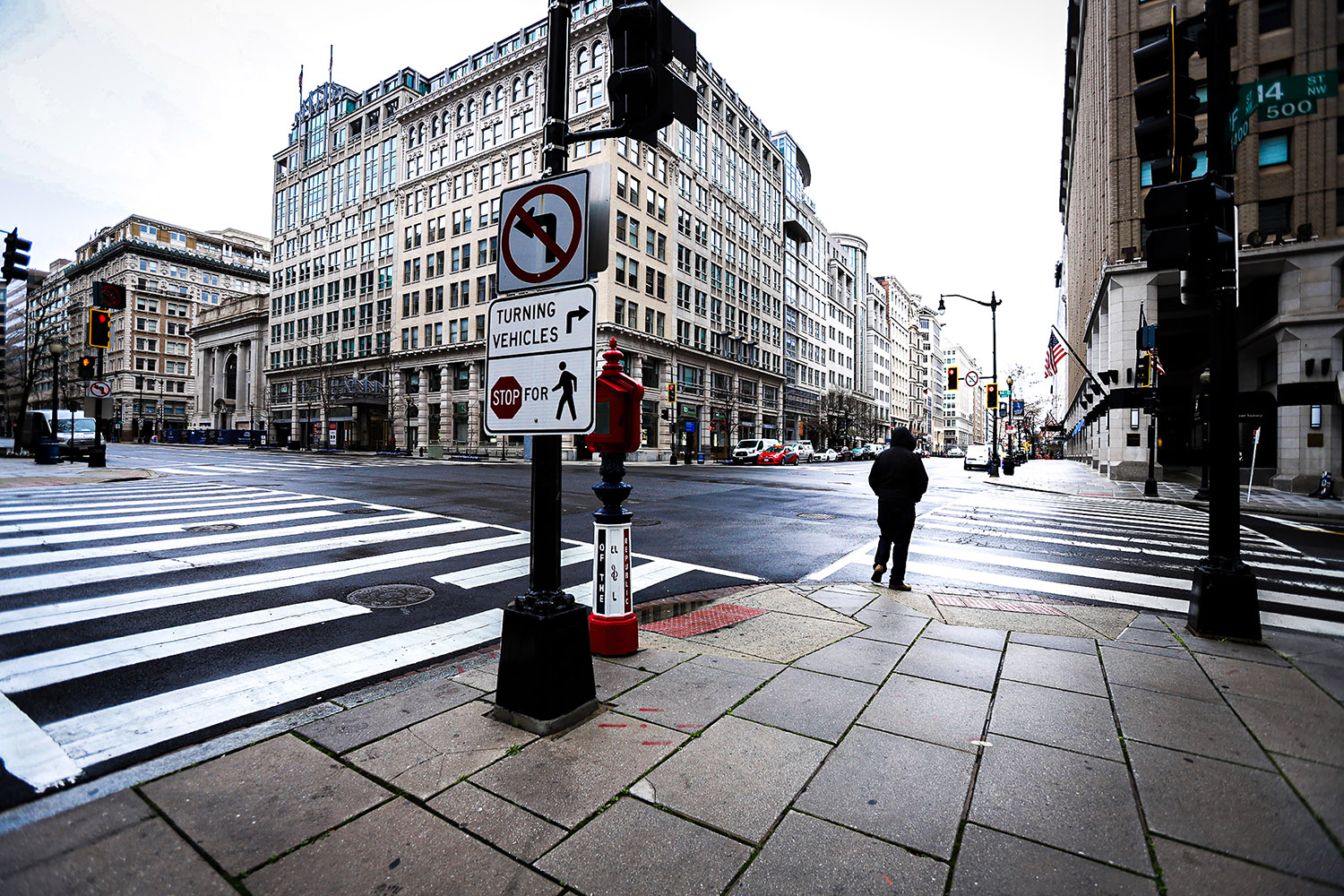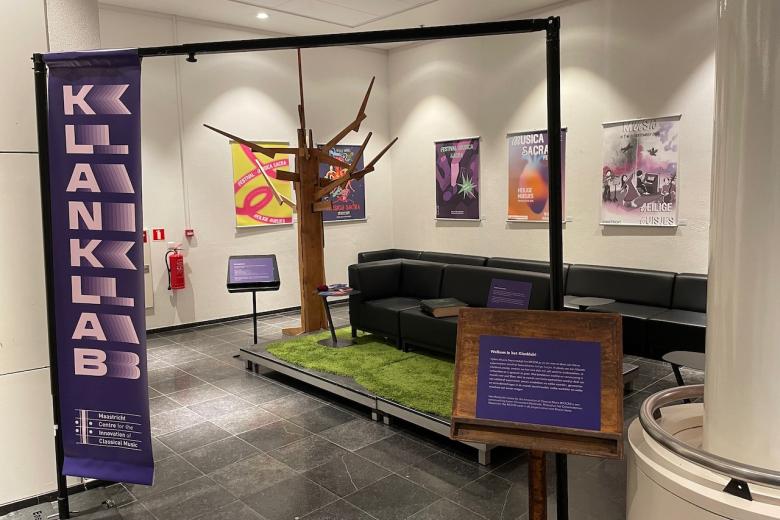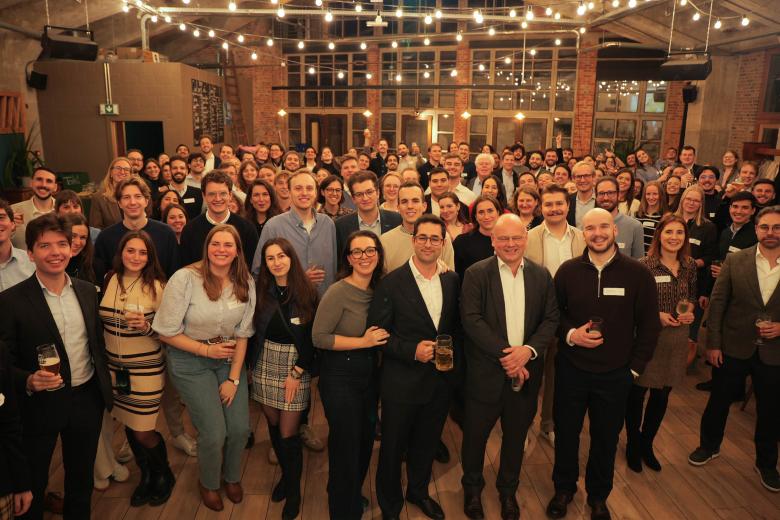Life and work in Washington DC during Covid-19
Almost three years ago, Timor El-Dardiry, a graduate of International Economic Studies at UM, moved to Washington DC to work at the Dutch Embassy. As First Secretary in the political department, his main focus is on US policy in the Arab world and the Middle East. He also reports on domestic politics in the United States. Much of the Embassy’s work is currently devoted to dealing with corona. “A colleague of mine was working day and night to find a solution for Dutch nationals on cruise ships in the region, which were sailing around for weeks with nowhere to dock.”
How has the corona crisis changed your work?
“The Embassy was closed in March and since then my colleagues and I have been working from home. All appointments have been cancelled. As a diplomat, you usually try to get out and about and spend as little time as possible at your desk. Having an informal chat over a coffee, you often get a much better idea of what’s what. One of the most valuable conversations I ever had was in a burger joint – that’s where I learned the ins and outs of a sudden change in US policy in an Arab country. In a normal work week, I’d meet with US colleagues working at the White House or the State Department, staffers of Congress members and experts from think tanks. Now that all happens by email and phone, or – if you’re lucky – a video connection. The type of conversation you have is different, more formal. It’s doable, but it’s far from ideal.
“April and May are normally peak months for events, like the annual Tulip Reception, King’s Day and the commemoration of the end of World War II. Those are times when ties between the Netherlands and the United States are tightened. We’ve now switched partly to online events. Remembrance Day on 4 May went ahead, but with no audience; a recording was distributed via social media. For the 75 Years of Freedom, the Embassy organised an online exhibition about the Netherlands Carillon, a gift from the Dutch people to the US in gratitude for the liberation and reconstruction. Normally we visit about eight states a year with teams from the Embassy to get a good picture of the political and economic landscape. That’s now all on hold.”
It’s an election year. Who will be the next president: Trump or Biden?
“If I were able to predict that, I’d switch careers! Joking aside, we mainly try to interpret or signal things here rather than making predictions. Which themes are important; what tactics are the candidates and their parties using; how are things looking in the swing states, which can decide the outcome – questions like that. Colleagues at different ministries in The Hague are of course very interested in the latest developments in the battle between Trump and Biden and the fight for Congress.”

In Europe, some countries have very strict corona measures and strict enforcement, including steep fines. What are things like in Washington DC?
“Washington has been hit hard by the virus and the measures here are comparable to those in many European countries. Shops and schools are still closed, restaurants are open for takeout and delivery only. The curve is now levelling off, and this week the mayor announced the first relaxation of the rules, including the reopening of hairdressers. We’re not in full lockdown, but there is a stay-at-home order: you can only go outside for a valid reason. Recreation is allowed, provided you stay at a safe distance from others. People generally follow the rules, so the streets a very quiet. Other than a few road closures at tourist attractions, enforcement is not very visible. I don’t know anyone who’s been fined, although there are cases of restaurants being fined for breaking the rules. Buses and metros are still running, but services are limited. You can use public transport if you keep your distance from other passengers. Bus drivers can decide to turn people away if it’s getting too busy. Face masks are not mandatory in Washington, but they are strongly recommended – and most people follow that advice.”
How has it affected your personal life?
“My fiancée and I have turned our apartment into a home office. We keep contact with others to a minimum and follow the rules and guidelines. We order groceries online as far as possible. We don’t meet up with friends anymore, and we won’t be going to the Netherlands for a while. I find that difficult. Because we live in the US, we see very little of our family and friends in the Netherlands anyway. Now we can’t see them at all.”
How are you colleagues and friends responding to the crisis? Are they worried, or do they, like the anti-lockdown protesters, see the rules as unnecessary?
“Everybody I know is aware of the risks and accepts the measures. So far there have been no major protests in Washington DC. This city mainly votes Democratic, so the divide you see elsewhere between supporters and opponents is less prevalent here. Incidentally, I wouldn’t simply dismiss the protests against the lockdowns and stay-at-home orders as laconic. The measures taken are unprecedented, and the social safety net is less resilient here than in many European countries. Last year – before the pandemic broke out – 40% of Americans didn’t have the savings to absorb a $400 setback. The US Central Bank is now warning that unemployment could reach as high as 25%, and some institutions predict that the US economy may shrink by 30%. Millions of people can no longer pay their mortgage or rent, and many households are in danger of going under. So it’s not surprising that debate arises, especially in a country that values freedom so highly.”
Do you sense a clear divide between supporters and opponents in that context?
“I don’t notice it much here in Washington DC, but elsewhere the divide is much starker. And that translates to the rhetoric that can be heard on Capitol Hill and in the White House. In the city itself I mainly see solidarity and unity; people are really doing their best to be considerate of one another. I understand the strict rules, but at the same time I realise that for me, they’re at most an inconvenience; they have a much bigger impact on people who live alone and families with young children. If you’re in danger of losing your job and there’s nothing to fall back on, if you can no longer afford to rent your retail space, then you don’t have the luxury of patience. Also, the pandemic has hit large cities much harder than rural areas. So I’m not surprised that the pressure to relax the rules is increasing in certain parts of the country – as long as it’s done intelligently and can be adjusted if infections rise too quickly. Like everyone else, I’ve got my fingers crossed for a breakthrough in medical science – so that we can see our family and friends again soon.”
Text: Margot Krijnen
Also read
-
More than a student job: five alumni about their unique role in groundbreaking vascular research
What is it like to take part in cutting-edge vascular research as a student, standing in the operating room, directly responsible for handling patient material? Five alumni of the Maastricht MAPEX student team share what they learned, the challenges they faced, and how this experience shaped their...

-
SoundLab
On September 19, 2025, the MCICM introduced a new form of interactive audience participation, the Sound Lab.

-
MA European Public Affairs Turns 25 – Alumni Celebrate in Brussels
Maastricht University recently celebrated the 25th anniversary of its European Public Affairs Master’s programme (MA EPA) with a large alumni gathering in Brussels. The event, held on 30 October at Au Bassin, welcomed more than 120 alumni from across 25 graduating cohorts — from the first class in...
